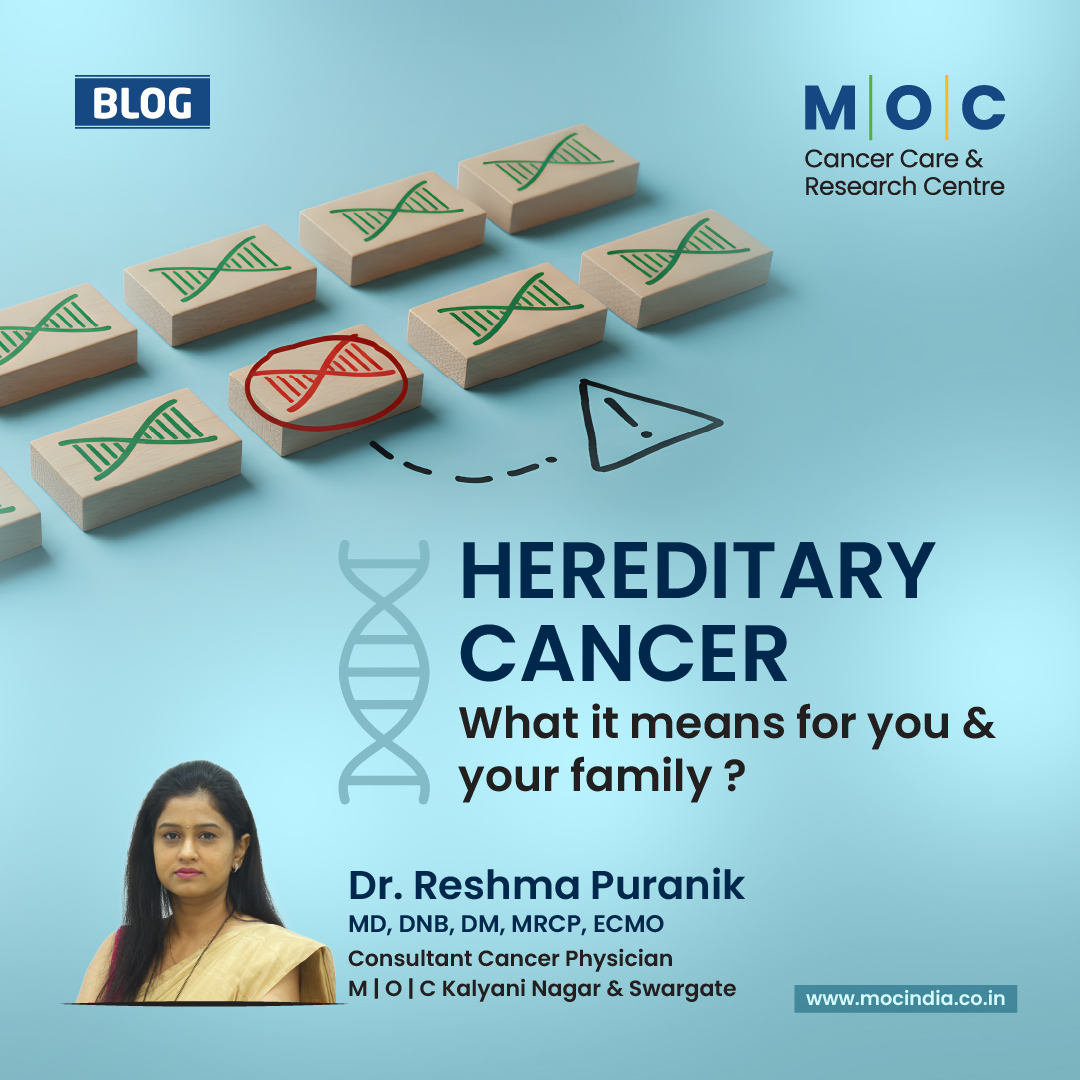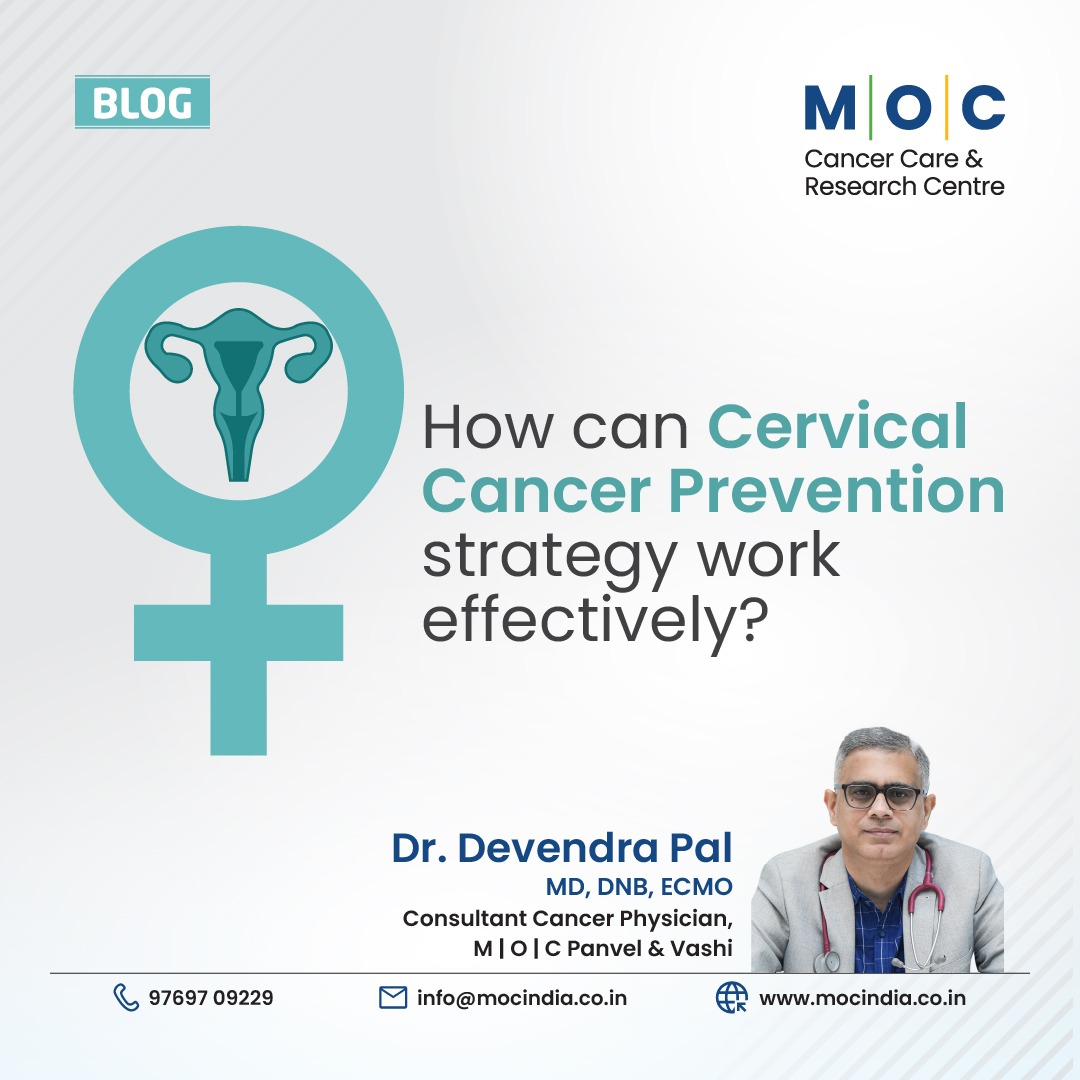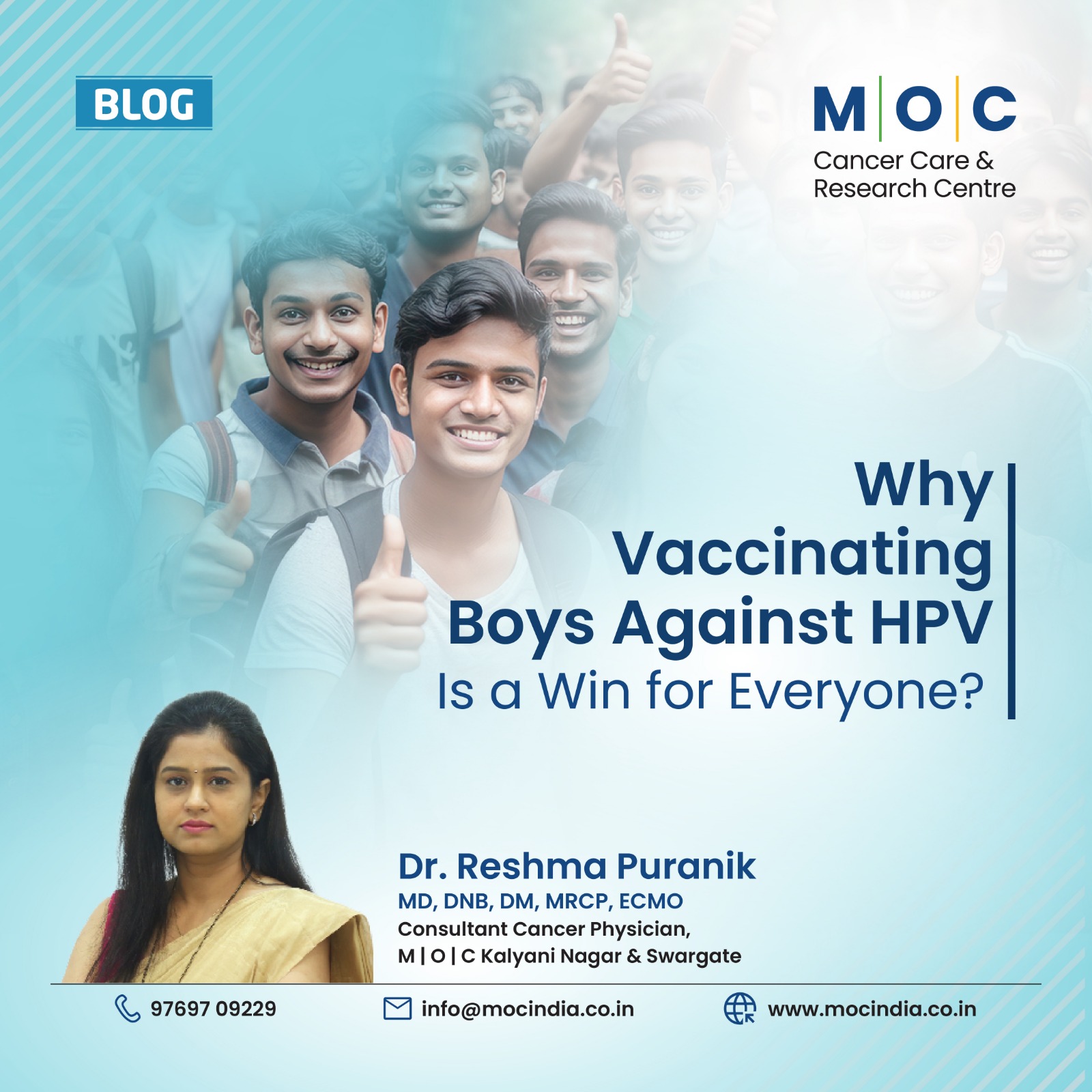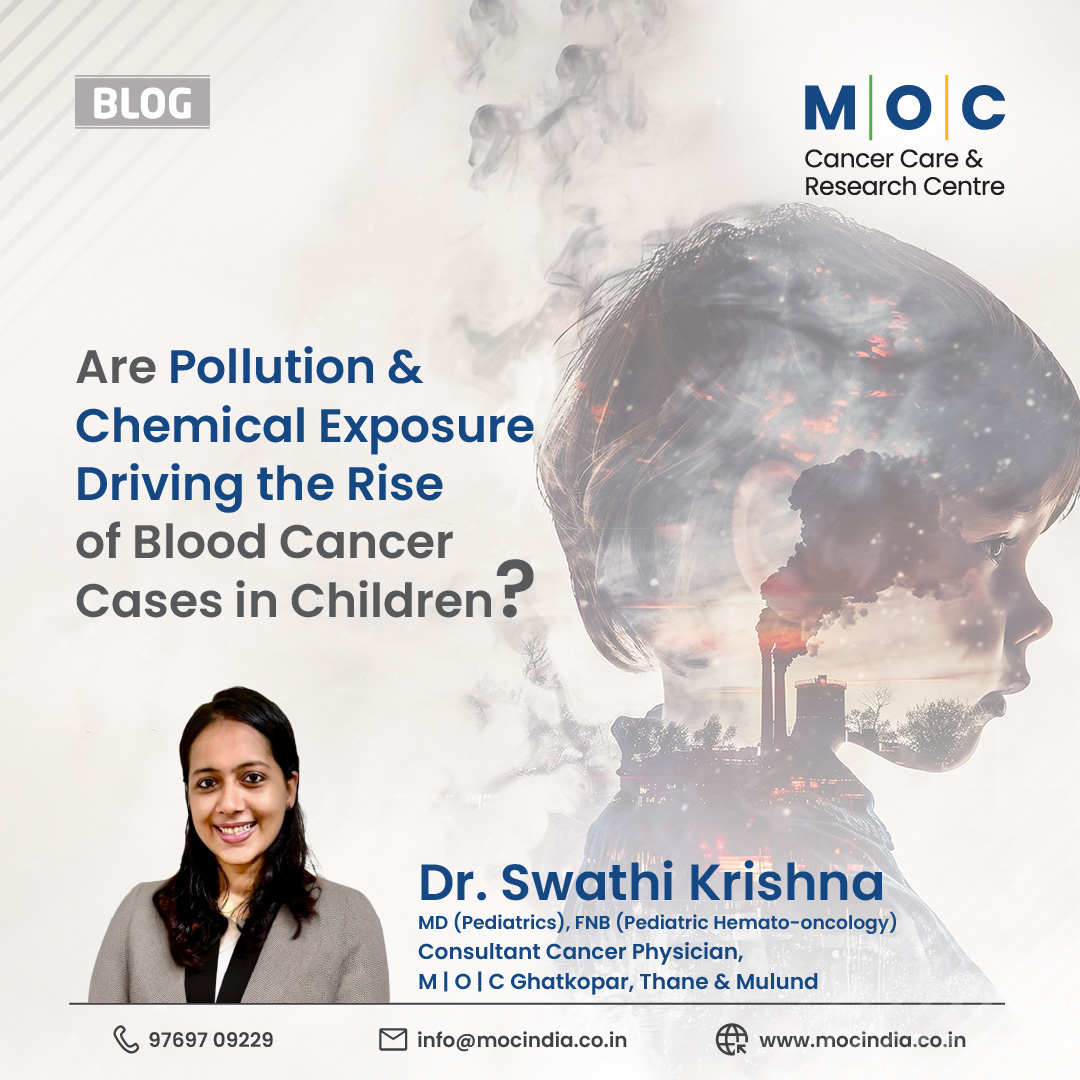Hereditary Cancer: What You Need to Know About Family Risk and Prevention?



“Doctor, my father had cancer. Will I get it too?”
This is one of the most common questions people ask. It reflects fear, curiosity, and a desire to take control of their health. And it’s a very valid question—because yes, some types of cancer can run in families.
What is Hereditary Cancer?
Hereditary cancer means a person may have inherited faulty genes (mutations) from their parents, which increase the risk of developing certain types of cancer. These faulty genes can be passed down from one generation to the next—just like we inherit our eye colour or height. But not all cancers are hereditary. In fact, only 5–10% of all cancers are due to inherited gene mutations. The rest are caused by lifestyle, environment, or happen by chance.
How Do Genes Cause Cancer?
Our genes act like a blueprint for how our body works. Some genes are responsible for controlling how cells grow and repair themselves. When these genes are faulty (mutated), they may allow abnormal cells to grow uncontrollably—leading to cancer. The most well-known examples are the BRCA1 and BRCA2 genes, which, when mutated, increase the risk of breast and ovarian cancer.
Who is at Risk?
You may have a higher risk of hereditary cancer if:
- Several close relatives (parents, siblings, uncles, aunts) had the same or related types of cancer
- Cancer occurred at a younger age (e.g., breast cancer before 40)
- A family member had more than one type of cancer
- There’s a known genetic mutation in the family (e.g., BRCA, Lynch syndrome)
- Rare cancers like male breast cancer or ovarian cancer in the family
- If this sounds familiar, consult a doctor or genetic counselor.
Can We Test for Hereditary Cancer Risk?
- Yes. Genetic testing is available in many parts of India today. A simple blood or saliva sample is used to check if you carry a cancer-linked gene mutation.
- But this test is not for everyone. It is usually advised:
- When there is a strong family history of cancer
- After proper counselling by a trained doctor or genetic expert
- Important: Testing positive does not mean you have cancer, only that your risk is higher than normal.
What Can You do if You're at Higher Risk?
Knowledge is power. If you have a hereditary cancer risk, there are steps you can take to stay ahead:
Regular screenings: Start cancer check-ups earlier and more often than the general public.
Lifestyle changes: Quit smoking, eat healthy, exercise, reduce alcohol—these lower risk for everyone.
Preventive options: In some cases, medications or surgeries may be considered to reduce risk.
Family planning: You can discuss genetic risks with your doctor before having children.
What Should Indians know?
In India, awareness is still low about hereditary cancer. Many people ignore family history or delay check-ups due to stigma or lack of information. Cost of genetic testing has come down, and many hospitals and cancer centers offer it. Both men and women can pass on cancer-related genes—so don’t ignore your father’s side of the family!
Final Thought
Cancer doesn’t always follow family lines. But when it does, we have tools to detect it early or even prevent it. Don’t panic. Get informed. Talk to your doctor. Your genes are not your destiny. Awareness is your first step to protection.
Dr.Reshma Puranik
M.D DNB, DM MRCP, ECMO
Consultant Cancer Physician
MOC Cancer Care & Research Centre, Swargate & Kalyani Nagar
Latest Blogs
-
![Nidar Naari is a movement initiated by M|O|C Cancer Care & Research Centre]()

- 10th Feb, 2026
- Nidar Naari is a movement initiated by M|O|C Cancer Care & Research Centre
-
![Cervical Cancer Awareness Month- January 2026]()

- 23rd Jan, 2026
- Cervical Cancer Awareness Month- January 2026
-
![Why Vaccinating Boys Against HPV is a Win for Everyone ?]()

- 20th Jan, 2026
- Why Vaccinating Boys Against HPV is a Win for Everyone ?
-
![Are Pollution and Chemical Exposure Driving the Rise of Blood Cancer Cases in Children?]()

- 17th Jan, 2026
- Are Pollution and Chemical Exposure Driving the Rise of Blood Cancer Cases in Children?
-
![Significant Advancements in Cancer Treatment in 2025- Dr Kunal Jobanputra- M|O|C Kemps Corner and Mahim]()

- 12th Jan, 2026
- Significant Advancements in Cancer Treatment in 2025- Dr Kunal Jobanputra- M|O|C Kemps Corner and Mahim
-
![Managing sleep disturbances during and after cancer treatment]()

- 11th Dec, 2025
- Managing sleep disturbances during and after cancer treatment
Book Your Appointment








